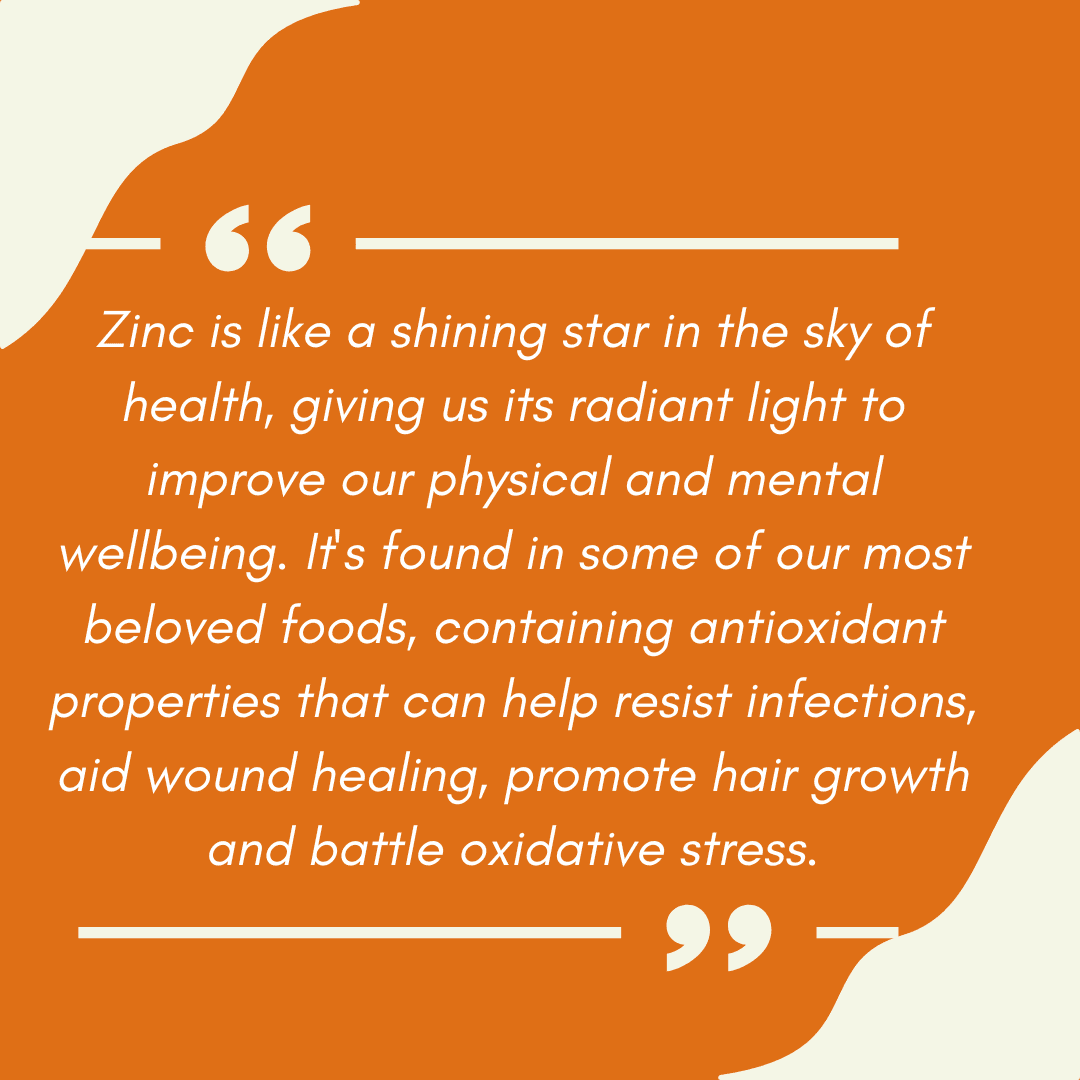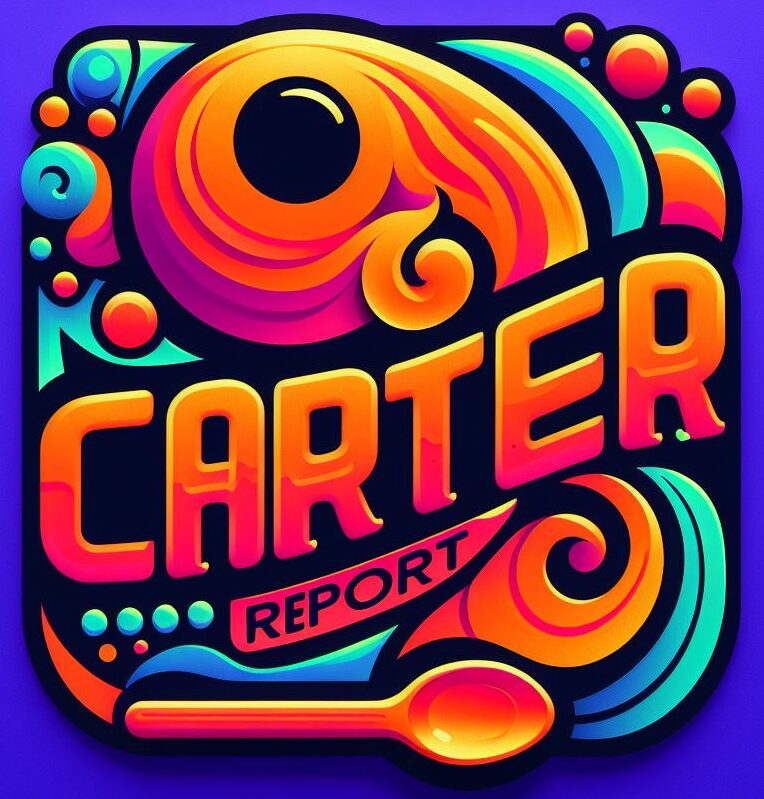Nature has bestowed us with a powerful mineral that can help us reach peak physical and mental well-being: zinc. It is found in some of the world’s most beloved foods, and its antioxidant properties can fight oxidative stress, keep our skin healthy and clear, aid in wound healing, promote hair growth, and resist infections such as the common cold – all while fighting off nutrition deficiencies associated with diabetes. Zinc truly is one of nature’s best gifts to mankind!

Table of Contents
What are the health benefits of zinc?
Ah, the mysterious and indispensable trace mineral that is zinc. For centuries it has been greatly appreciated for its health benefits, whether it’s helping to protect immune function, reducing symptoms of Attention Deficit Hyperactivity Disorder (ADHD), or even as a form of defense against cell damage caused by free radicals. It’s no wonder that zinc supplementation has become so popular: it can be taken as pills or lozenges containing elemental forms such as zinc sulfate or gluconate for maximum absorption.
But that is not all this mighty mineral does. Zinc also helps promote hair growth, wound healing, and resistance to infections such as the common cold. Plus, its antioxidant properties can fight oxidative stress, keep our skin healthy and clear, and even help us to maintain a balanced ratio of copper and iron levels in the body.
You don’t have to rely on vitamins alone to get your daily dose of dietary zinc. Oysters, shellfish, broccoli, and fortified cereals are all excellent sources of this essential nutrient, and adding even a few more to your daily meals can make a huge difference in how you look and feel. Investing in the right formulae will ensure that there are no nutritional gaps left unfilled – something we all deserve!
So don’t wait any longer; get yourself some zinc for the ultimate health boost throughout life’s many stages. With its powerful benefits and easy-to-take forms, it is a mineral you won’t want to miss out on!
How much zinc should I take per day?
The Recommended Dietary Allowance (RDA) for zinc is 8 milligrams/day for women and 11 milligrams/day for men. However, certain health conditions may require higher intake levels – such as during pregnancy or with sickle cell disease. Even if you’re not a pregnant woman or suffering from sickle cell disease, many scientific studies – including randomized controlled trials involving thousands of people around the world – suggest that supplementing with 10-20mg per day of elemental zinc can be beneficial to boost your immunity and well-being. The most commonly available forms are zinc gluconate, acetate, or oxide; so if you choose to supplement make sure to compare the different forms carefully!
Did you know zinc is an essential trace mineral found in some of the world’s most beloved foods? It supports growth and development, immune response, and normal taste and smell. I have personally felt its benefits after supplementing with zinc – particularly when it comes to the prevention of cold symptoms.
What does zinc do for the body’s immune system and overall health?
Zinc is an incredibly powerful mineral for healthy cell function and a robust immune system. It has been known to reduce the symptoms of acute and recurring illnesses, enhance healing speed, and even help prevent cancer cells from developing. From aiding in wound healing to helping with age-related skin problems like acne, zinc plays a vital role in defending against disease by keeping our cells strong and balanced. In addition, studies have shown that zinc supplementation can help reduce the risk of nutrition deficiencies associated with diabetes, increase testosterone levels in men, and improve fertility in adults while protecting pregnant women and their unborn babies simultaneously – all while combating diarrhea, infection, and weight loss. Zinc truly is one of nature’s most incredible vitamins and minerals!
Is 50 mg of zinc too much for an adult to take daily?
Controlled clinical trials have suggested that oral zinc supplementation can aid in weight loss and even prevent copper deficiency when taken in small amounts (up to 31 mg/day). However, randomized controlled trials also suggest that doses over 50 mg/day can lead to acne or diarrhea symptoms. All in all, I believe adults should limit their intake of supplemental forms of zinc per day unless recommended by a specialist or doctor. So really one should proceed with caution when taking large amounts of any vitamins and minerals – especially the trace elements like zinc!
What food sources contain significant amounts of zinc?
Look no further than the likes of oysters, beef, crab, lobster, pork, and chicken. Furthermore, for vegetarians or vegans, there is ample opportunity for zinc intake via foods such as tofu, legumes (such as black beans), cashews, and pumpkin seeds. And just in case you were wondering – even if a food doesn’t contain large amounts of zinc initially it may still end up providing a significant contribution after cooking or processing by the body itself due to efficient absorption methods like that seen in oral supplementation or form of zinc like acetate or sulfate which are associated with increased levels when taken as dietary supplements. As always we recommend you review needs specific to your age & current zinc status before making any changes to how much you consume.
How much zinc should a woman take per day, on average?
If you’re a woman looking to add zinc to your daily routine, the answer is simple: no more than 8 milligrams per day. This recommended daily allowance is based on the average dietary intake of zinc from foods and supplements. Indeed, zinc is an essential mineral that has a strong influence on many body functions, including immune health, vision, fertility, and wound healing.
Are there any risks associated with taking high doses of zinc supplements?
Too much of it can have unpleasant side effects such as nausea, vomiting, and diarrhea; but with plenty of sources available in food – oysters, red meat, poultry, beans, nuts, and whole grains – plus supplements if needed, it’s easy to get the right amount for optimal health.
How much should be taken daily to increase sperm volume, if desired?
How many milligrams of zinc should be consumed daily to boost semen quantity? To answer this I turned to Trace Elem Res, Clin Nutr, and Systematic Reviews which review human trials assessing the efficacy of zinc for such a purpose. According to controlled clinical trials, taking zinc by mouth in doses ranging from 10–30 mg per day increased sperm volumes within three months compared to placebo or no treatment depending on baseline levels of serum zinc and copper. It was found that using 25mg/day of elemental zinc provided optimal results for increasing sperm volumes when combined with 200mg/day of Ascorbic Acid (Vitamin C). Zinc oxide and Zinc Acetate are two readily available sources as well as plant-based foods such as spinach, pumpkin seeds, and mushrooms. Ultimately it is best to consult your doctor or health care provider before supplementing with any type of mineral or trace elements to determine what dosage works best for you!
How does zinc compare to other essential minerals in terms of health benefits?
At Institutes of Health across the globe, controlled clinical trials, placebo-controlled trials, and randomized controlled trials have been conducted to review and meta-analyze the effects of zinc. Zinc’s impact on health is quite remarkable: elevated levels have been found to offer relief from symptoms such as colds; a trial with zinc sulfate lozenges has even yielded positive results. Plant-based sources like legumes are known to increase the absorption of supplemental zinc in patients suffering from zinc deficiencies; dietary changes can also help manage blood concentrations of this essential mineral. Systematic reviews and med analyses of children undergoing therapy suggest that managing zinc levels over time is a powerful tool when it comes to health benefits derived from minerals, surpassing other essential proteins or products by far. To put it simply, if you want radiance — start with a daily dose of zinc!
